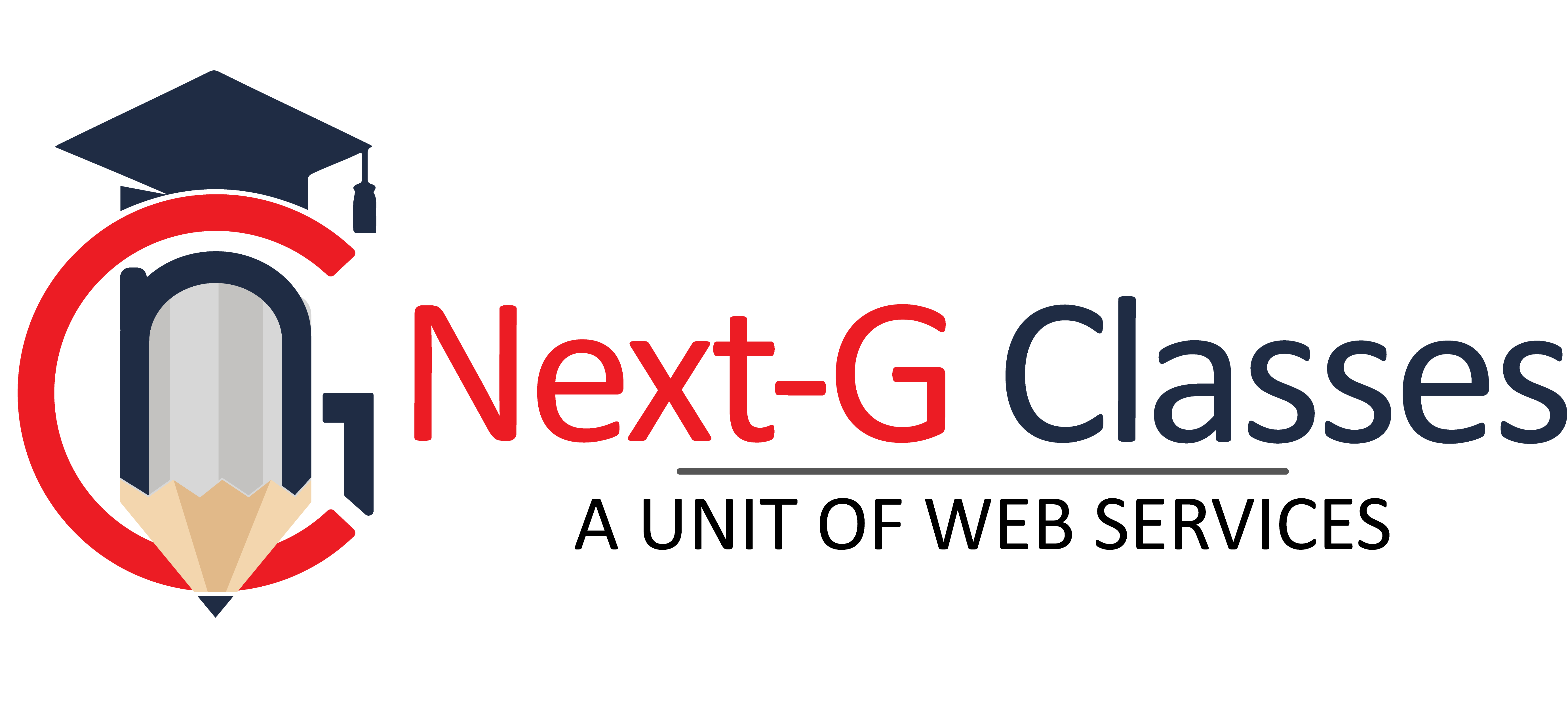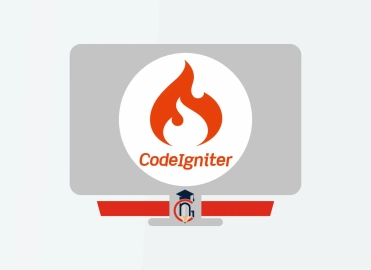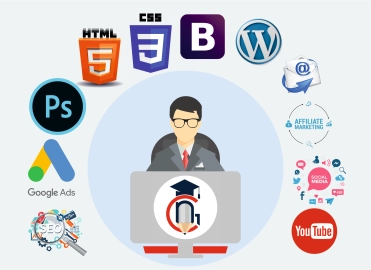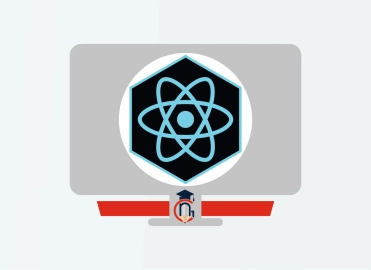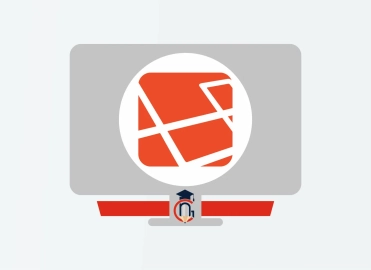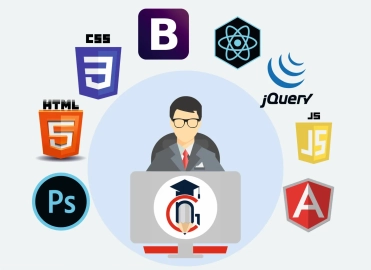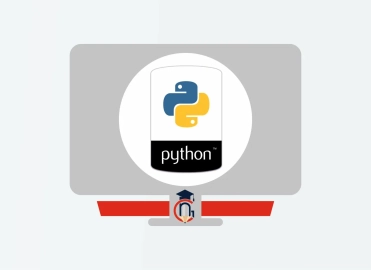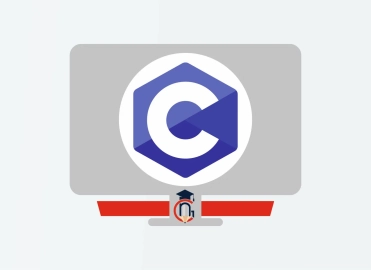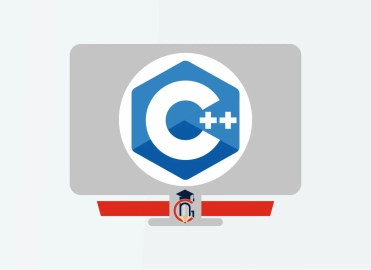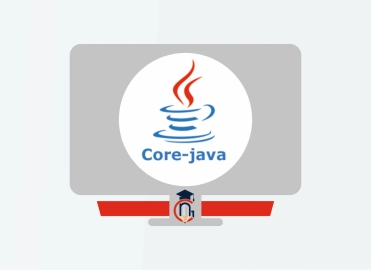Advance Python Expert Course
| Training Mode | Regular | Fastrack | Crash |
|---|---|---|---|
| Classroom | Online | 4 Months (M,W,F or T,T,S Class) (3 Class in a week) |
2 Months (Monday to Friday Class) (5 Class in a week) |
1 Months (Monday to Friday Class) (5 Class in a week 1:30 hour duration) |
Next G Classes offers an intensive Advance Python Expert Course designed to equip participants with in-depth knowledge and practical skills in Python programming and data science. This course is structured into two comprehensive modules, each focusing on essential aspects of Python and its applications.
Module 1: In this, participants embark on a journey from foundational Python concepts to advanced techniques. They start with Python basics, covering syntax, data types, control structures, and functions. As they progress, they delve into Advanced Python topics such as object-oriented programming (OOP), decorators, generators, and multithreading. This module ensures a solid understanding of Python's capabilities, preparing participants to write efficient and scalable code for diverse applications.
Module 2: It focuses on leveraging Python for Data Science, a critical skill in today's data-driven world. Participants learn SQL (Structured Query Language), essential for managing and querying databases. They gain proficiency in data manipulation and analysis using Python libraries such as NumPy, Pandas, Matplotlib, and Seaborn. Hands-on projects and case studies enable participants to apply their knowledge to real-world scenarios, mastering the entire data science workflow from data cleaning and preprocessing to visualization and statistical analysis.
At Next G Classes, the Advance Python Expert Course not only equips participants with technical expertise but also fosters problem-solving abilities and critical thinking in Python programming and data science. With industry-relevant curriculum, expert instructors, and practical learning experiences, graduates of this course are well-prepared to excel in roles requiring advanced Python skills and data science proficiency. Whether aiming to enter the tech industry or advance in their current career, this course provides the essential toolkit for success in the dynamic field of Python programming and data science.
WHO CAN JOIN Advance Python Expert Course
- 10th, 12th or Equivalent
- BCA/MCA, B.Tech, M.Tech, B.sc (IT), B.sc(CS)
- Diploma Candidates
Module-1 Python Basic Course & Python Advance Course
Introduction to Languages
- What is Language?
- Types of languages
- Introduction to Translators
- Compiler
- Interpreter
- What is Scripting Language?
- Types of Script
- Programming Languages v/s Scripting Languages
- Difference between Scripting and Programming languages
- What is programming paradigm?
- Procedural programming paradigm
- Object Oriented Programming paradigm
- WHY PYTHON?
- History
- Features – Dynamic, Interpreted, Object oriented, Embeddable, Extensible, Large standard libraries, Free and Open source
- Why Python is General Language?
- Limitations of Python
- What is PSF?
- Python implementations
- Python applications
- Python versions
- PYTHON IN REALTIME INDUSTRY
- Difference between Python 2.x and 3.x
- Difference between Python 3.7 and 3.8
- Software Development Architectures
Python Software’s
- Python Distributions
- Download &Python Installation Process in Windows, Unix, Linux and Mac
- Online Python IDLE
- Python Real-time IDEs like Spyder, Jupyter Note Book, PyCharm, Rodeo, Visual Studio Code, ATOM, PyDevetc
- Python Language Fundamentals
Operators
- Arithmetic Operators
- Comparison Operators
- Python Assignment Operators
- Logical Operators
- Bitwise Operators
- Shift operators
- Membership Operators
- Identity Operators
- Ternary Operator
- Operator precedence
- Difference between “is” vs “==”
- Input & Output Operators
- Input
- Command-line arguments
Control Statements
- Conditional control statements
- If
- If-else
- If-elif-else
- Nested-if
- Loop control statements
- for
- while
- Nested loops
- Branching statements
- Break
- Continue
- Pass
- Return
- Case studies
Data Structures or Collections
- Introduction
- Importance of Data structures
- Applications of Data structures
- Types of Collections
- Sequence
- Strings, List, Tuple, range
- Non sequence
- Set, Frozen set, Dictionary
- Strings
- What is string
- Representation of Strings
- Processing elements using indexing
- Processing elements using Iterators
- Manipulation of String using Indexing and Slicing
- String operators
- Methods of String object
- String Formatting
- String functions
- String Immutability
- Case studies
List Collection
- What is List
- Need of List collection
- Different ways of creating List
- List comprehension
- List indices
- Processing elements of List through Indexing and Slicing
- List object methods
- List is Mutable
- Mutable and Immutable elements of List
- Nested Lists
- List_of_lists
- Hardcopy, shallowCopy and DeepCopy
- zip() in Python
- How to unzip?
- Python Arrays:
- Case studies
Tuple Collection
- What is tuple?
- Different ways of creating Tuple
- Method of Tuple object
- Tuple is Immutable
- Mutable and Immutable elements of Tuple
- Process tuple through Indexing and Slicing
- List v/s Tuple
- Case studies
Set Collection
- What is set?
- Different ways of creating set
- Difference between list and set
- Iteration Over Sets
- Accessing elements of set
- Python Set Methods
- Python Set Operations
- Union of sets
- functions and methods of set
- Python Frozen set
- Difference between set and frozenset ?
- Case study
Dictionary Collection
- What is dictionary?
- Difference between list, set and dictionary
- How to create a dictionary?
- PYTHON HASHING?
- Accessing values of dictionary
- Python Dictionary Methods
- Copying dictionary
- Updating Dictionary
- Reading keys from Dictionary
- Reading values from Dictionary
- Reading items from Dictionary
- Delete Keys from the dictionary
- Sorting the Dictionary
- Python Dictionary Functions and methods
- Dictionary comprehension
Functions
- What is Function?
- Advantages of functions
- Syntax and Writing function
- Calling or Invoking function
- Classification of Functions
- No arguments and No return values
- With arguments and No return values
- With arguments and With return values
- No arguments and With return values
- Recursion
- Python argument type functions :
- Default argument functions
- Required(Positional) arguments function
- Keyword arguments function
- Variable arguments functions
- pass’ keyword in functions
- Lambda functions/Anonymous functions
- map()
- filter()
- reduce()
- Nested functions
- Non local variables, global variables
- Closures
- Decorators
- Generators
- Iterators
- Monkey patching
Module: 1
- Importance of modular programming
- What is module
- Types of Modules – Pre defined, User defined.
- User defined modules creation
- Functions based modules
- Class based modules
- Connecting modules
- Import module
- From … import
- Module alias / Renaming module
- Built In properties of module
- Organizing python project into packages
- Types of packages – pre defined, user defined.
- Package v/s Folder
- py file
- Importing package
- PIP
- Introduction to PIP
- Installing PIP
- Installing Python packages
- Un installing Python packages
- Procedural v/s Object oriented programming
- Principles of OOP – Encapsulation , Abstraction (Data Hiding)
- Classes and Objects
- How to define class in python
- Types of variables – instance variables, class variables.
- Types of methods – instance methods, class method, static method
- Object initialization
- ‘self’ reference variable
- ‘cls’ reference variable
- Access modifiers – private(__) , protected(_), public
- AT property class
- Property() object
- Creating object properties using setaltr, getaltr functions
- Encapsulation(Data Binding)
- What is polymorphism?
Module: 4 Overriding
- Method overriding
- Constructor overriding
- Method Overloading
- Constructor Overloading
- Class re-usability
- Composition
- Aggregation
- Inheritance – single , multi level, multiple, hierarchical and hybrid inheritance and Diamond inheritance
- Constructors in inheritance
- Object class
- super()
- Runtime polymorphism
- Method overriding
- Method resolution order(MRO)
- Method overriding in Multiple inheritance and Hybrid Inheritance
- Duck typing
- Concrete Methods in Abstract Base Classes
- Difference between Abstraction & Encapsulation
- Inner classes
- Introduction
- Writing inner class
- Accessing class level members of inner class
- Accessing object level members of inner class
- Local inner classes
- Complex inner classes
- Case studies
Regular expressions
- Understanding regular expressions
- String v/s Regular expression string
- “re” module functions
- Match()
- Search()
- Split()
- Findall()
- Compile()
- Sub()
- Subn()
- Expressions using operators and symbols
- Simple character matches
- Special characters
- Character classes
- Mobile number extraction
- Mail extraction
- Different Mail ID patterns
- Data extraction
- Password extraction
- URL extraction
- Vehicle number extraction
- Case study
File &Directory handling
- Introduction to files
- Opening file
- File modes
- Reading data from file
- Writing data into file
- Appending data into file
- Line count in File
- CSV module
- Creating CSV file
- Reading from CSV file
- Writing into CSV file
- Object serialization – pickle module
- XML parsing
- JSON parsing
Date & Time module
- How to use Date & Date Time class
- How to use Time Delta object
- Formatting Date and Time
- Calendar module
- Text calendar
- HTML calendar
OS module
- Shell script commands
- Various OS operations in Python
- Python file system shell methods
- Creating files and directories
- Removing files and directories
- Shutdown and Restart system
- Renaming files and directories
- Executing system commands
Multi-threading & Multi Processing
- Introduction
- Multi-tasking v/s Multi-threading
- Threading module
- Creating thread – inheriting Thread class , Using callable object
- Life cycle of thread
- Single threaded application
- Multi-threaded application
- Can we call run() directly?
- Need to start() method
- Sleep()
- Join()
- Synchronization – Lock class – acquire(), release() functions
- Case studies
Garbage collection
- Introduction
- Importance of Manual garbage collection
- Self-reference objects garbage collection
- ‘gc’ module
- Collect() method
- Threshold function
- Case studies
Python Data Base Communications (PDBC)
- Introduction to DBMS applications
- File system v/s DBMS
- Communicating with MySQL
- Python – MySQL connector
- connector module
- connect() method
- Oracle Database
- Install cx_Oracle
- Cursor Object methods
- execute() method
- executeMany() method
- fetchone()
- fetchmany()
- fetchall()
- Static queries v/s Dynamic queries
- Transaction management
- Case studies
Python – Network Programming
- What is Sockets?
- What is Socket Programming?
- The socket Module
- Server Socket Methods
- Connecting to a server
- A simple server-client program
- Server
- Client
Tkinter & Turtle
- Introduction to GUI programming
- Tkinter module
- Tk class
- Components / Widgets
- Label , Entry , Button , Combo, Radio
- Types of Layouts
- Handling events
- Widgets properties
- Case studies
Module-2 Data Science
Module 1: Introduction to SQL
- Duration: 1 Month
-
Overview of Databases
- Understanding databases and their importance
- Types of databases: Relational vs. Non-relational
-
Introduction to SQL
- What is SQL?
- History and evolution of SQL
- SQL syntax and conventions
-
Basic SQL Commands
- SELECT, INSERT, UPDATE, DELETE
- Understanding data types
-
Database Schema
- Tables, rows, and columns
- Primary keys and foreign keys
- Creating and modifying database schemas
-
Hands-on Practice
- Setting up a local SQL environment
- Basic query exercises
Module 2: Intermediate SQL
- Duration: 2 Months
-
Advanced Querying Techniques
- WHERE clause and filtering data
- Using aliases for tables and columns
- Sorting results with ORDER BY
-
Joins and Subqueries
- INNER JOIN, LEFT JOIN, RIGHT JOIN, FULL JOIN
- Subqueries and nested queries
- UNION, INTERSECT, and EXCEPT
-
Aggregate Functions and Grouping
- COUNT, SUM, AVG, MIN, MAX
- GROUP BY and HAVING clauses
-
Data Manipulation
- Bulk inserts and updates
- Transactions and rollbacks
- Indexing for performance optimization
-
Hands-on Practice
- Complex query exercises
- Real-world database scenarios
Module 3: Advanced SQL
- Duration: 2 Months
-
Stored Procedures and Functions
- Creating and using stored procedures
- User-defined functions
-
Triggers and Views
- Creating and managing triggers
- Using views for simplified querying
-
Performance Tuning and Optimization
- Query optimization techniques
- Indexing strategies
- Analyzing query performance with EXPLAIN
-
Database Security
- User roles and permissions
- Encryption and data protection
- Best practices for securing databases
-
Data Warehousing and Analytics
- Introduction to data warehousing
- Using SQL for data analysis and reporting
-
Hands-on Practice
- Creating and using stored procedures and triggers
- Performance tuning exercises
- Data analysis projects
Module 4: SQL for Specific Databases
- Duration: 1 Month
-
SQL in Different Database Management Systems
- Differences in SQL syntax across MySQL, PostgreSQL, SQL Server, Oracle
-
Advanced Features in Specific DBMS
- MySQL: Advanced indexing, full-text search
- PostgreSQL: Window functions, JSON support
- SQL Server: Advanced security features, SQL CLR
- Oracle: PL/SQL, advanced transaction control
-
Database Migration and Integration
- Techniques for migrating databases
- Integrating SQL with other programming languages and tools
-
Hands-on Practice
- Working with different DBMS
- Database migration projects
- Integration exercises
-

Name : Bablu Kumar
Course : Web Developer
Project : jac
Guided By : Rajesh Sir
-

Name : Manish Bharti
Course : Web Designer
Project : Arcreative
Guided By : Rajesh Sir
-

Name : Manish Bharti
Course : Web Designer
Project : PaperPajama
Guided By : Rajesh Sir
-

Name : Guddu Kumar
Course : Advance Full Stack Developer Expert
Project : Bombay Butlers
Guided By : Rajesh Sir
-

Name : Manish Bharti
Course : Web Designer
Project : Beli Ram
Guided By : Rajesh Sir
-

Name : Guddu Kumar
Course : Advance Full Stack Developer Expert
Project : Green Pure
Guided By : Rajesh Sir
-

Name : Manish Bharti
Course : Web Designer
Project : Nidhi Maternity
Guided By : Rajesh Sir
-

Name : Harsh
Course : Full Stack Developer
Project : Abeautifulmindclinic
Guided By : Rajesh Sir
Contact Us
Course Feedback
Student Projects
-
.png)
Name : Manish Bharti
Course : Web Designer
Project : Mindx
Guided By : Rajesh Sir
-

Name : Manish Bharti
Course : Web Designer
Project : Light Basket
Guided By : Rajesh Sir
-

Name : Sakesh Kumar
Course : Web Development
Project : Delhi Hospital
Guided By : Rajesh Sir
-

Name : Vikash Kumar
Course : Full Stack Developer
Project : PS Health Care
Guided By : Rajesh Sir
-

Name : Bablu Kumar
Course : Web Developer
Project : Mudra Cash for Gold
Guided By : Rajesh Sir
-

Name : Manish Bharti
Course : Web Designer
Project : vedicessentials
Guided By : Rajesh Sir
-

Name : Guddu Kumar
Course : Advance Full Stack Developer Expert
Project : MPSswitches
Guided By : Rajesh Sir
-

Name : Guddu Kumar
Course : Advance Full Stack Developer Expert
Project : Palco
Guided By : Rajesh Sir
